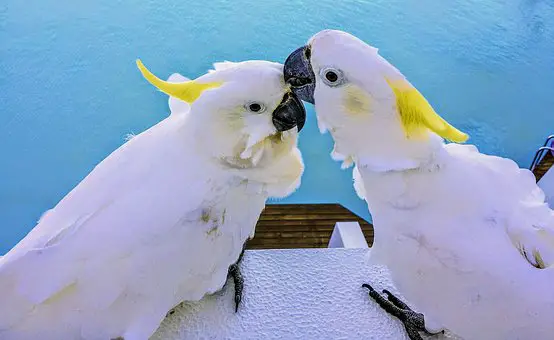Pet birds are not only adorable, but they also bring joy to our lives. If you have pets, you have witnessed the love these little birds have for their owners. We compiled a list of the top 10 most popular friendly pet birds for your reference.
Here is a blog for you if you want to pet a bird that’s friendly, gentle, and well-suited to being a great companion. People who are new to bird ownership can find it easier to bond with and care for a bird with a naturally friendly disposition than one that is painfully shy or unnecessarily aggressive. This guide shows you the top ten species of pet birds that will have a naturally warm personality, making them excellent companion birds.
When treating all pets as individual animals, it is possible to reduce the risk of biting and aggression by choosing a species that has a friendly and charming personality. Below are our top ten birds, and I am excited to begin the list with my favorite bird. 🎯
In this article
Budgerigar
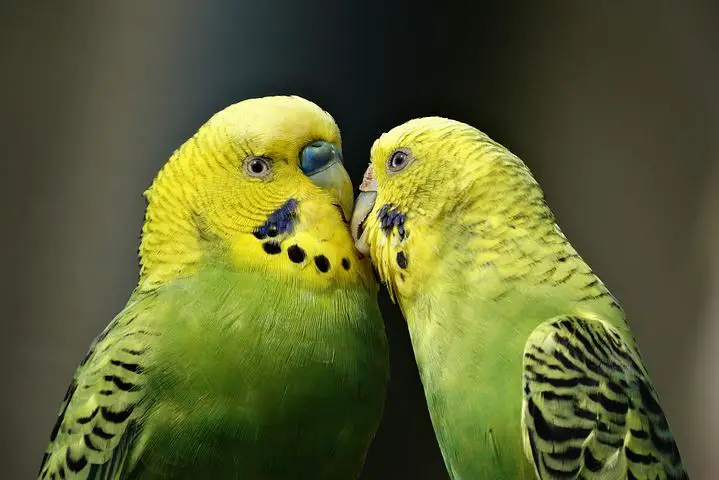
Also called parakeets, budgerigars are some of the best pet birds for all good reasons. They’re small, easy to train, and pretty easy to look after. They’re also among the most affectionate birds, and they will love to be taught. As pets, budgies take well to training on how to talk and learn to do lots of fun tricks.
These birds are known for their brilliant plumage and are among the most popular caged birds in the world. They can be up to 6 or 7 inches long, with a weight of 1 or 2 ounces. Their beaks are small and curved, and their wings and tails are long and pointed.
Green-Cheeked Conure
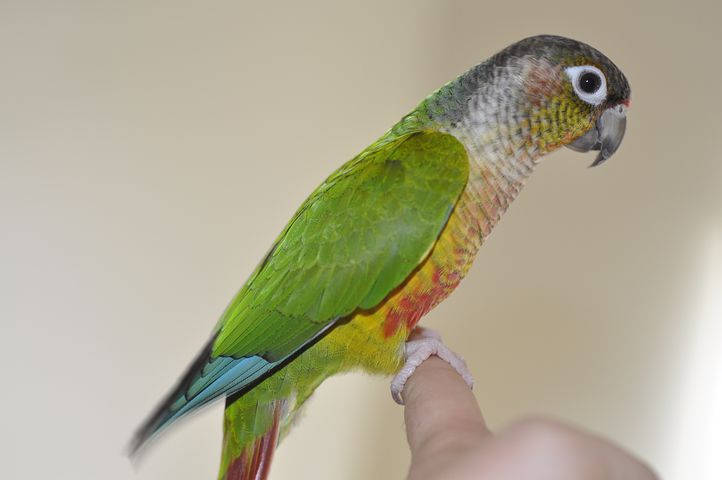
Green-cheeked conures are one of my favorites. In addition to being beautiful and friendly, they are also intelligent, playful, and slightly mischievous. They rarely learn to speak, but their sweet personalities and captivating behavior are more than enough to keep you entertained.
The Green-cheeked conure is an easy to keep pet bird, making it very popular with beginner bird owners. Its low noise level makes it a good choice for apartment dwellers, and its small size makes it ideal for first-time cage-free owners.
The green-cheeked conure is an easy-to-breed bird. As a result, it’s very available.
The characteristics of this bird are that: they are primarily green; olive-colored cheeks; grey heads and breast; maroon tails; blue flight feathers; mutations include turquoise, yellow, and cinnamon. Their weight ranges between 2 – 3 ounces with a length of 10 – 11 inches.
Hyacinth Macaw
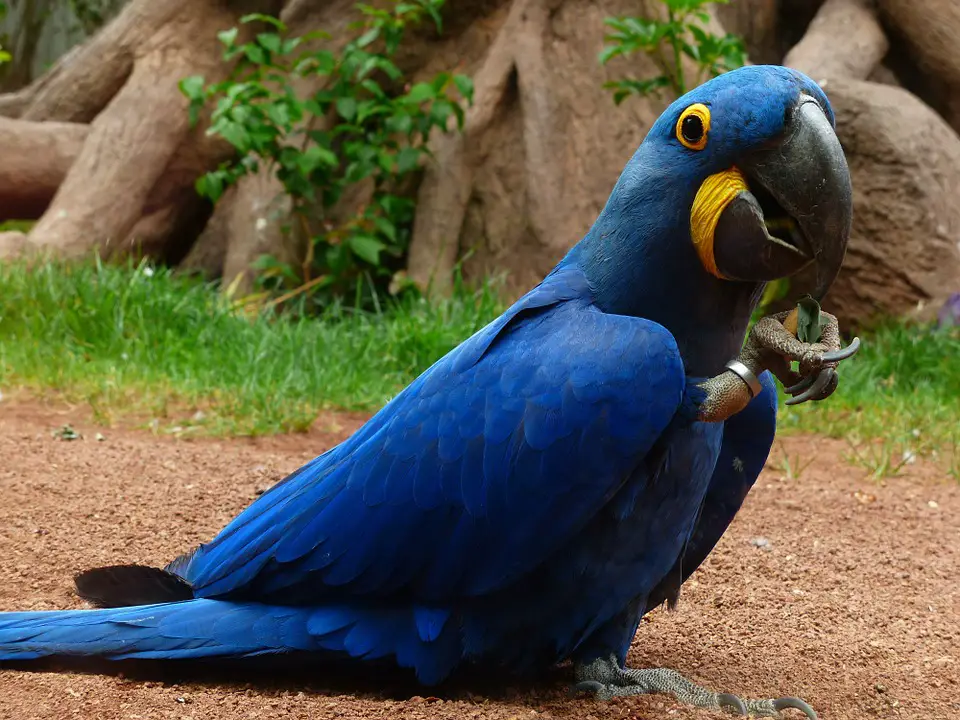
The most common parrot is the macaw. Macaws have a long history of captivity and breeding, and many people love them. They are social birds living in flocks and are playful, curious, and mimic human vocalizations. They can live up to 80 years or more. They can also be quite destructive when kept as pets.
In Summary:
-Macaws are brilliant and learn quickly
-They are the largest kind of parrots.
-They are highly social birds and live and travel in flocks
-They are playful, curious, and mimic human voices
-They are among the most endangered bird species
-They are one of the most popular parrots
-They are often kept as pets
Parrotlet
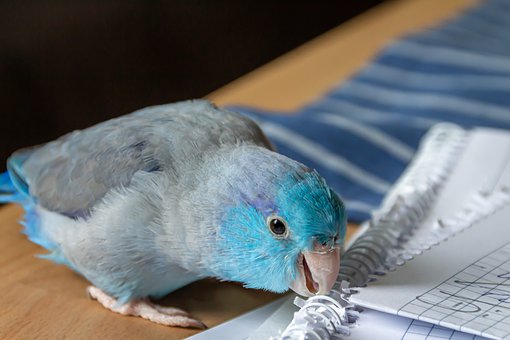
Parrotlets are small, intelligent, and relatively easy to care for, though some find them a little aggressive. They require a lot of interaction with their owner every day, so they’re not a good choice for someone more introverted. But people who enjoy interacting with their pets will probably love parrotlets.
Hahn’s Macaw
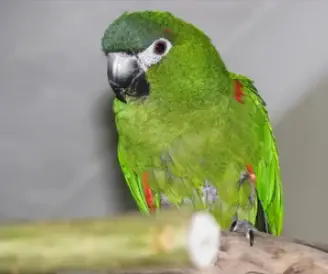
Comparatively, Hahn’s macaws are the most miniature macaws. They’re also adorable and affectionate birds, who often want as much interaction from their caregivers as possible. They can become depressed if they feel ignored or being left out. They also talk, but they don’t talk like some parrots.
Dove
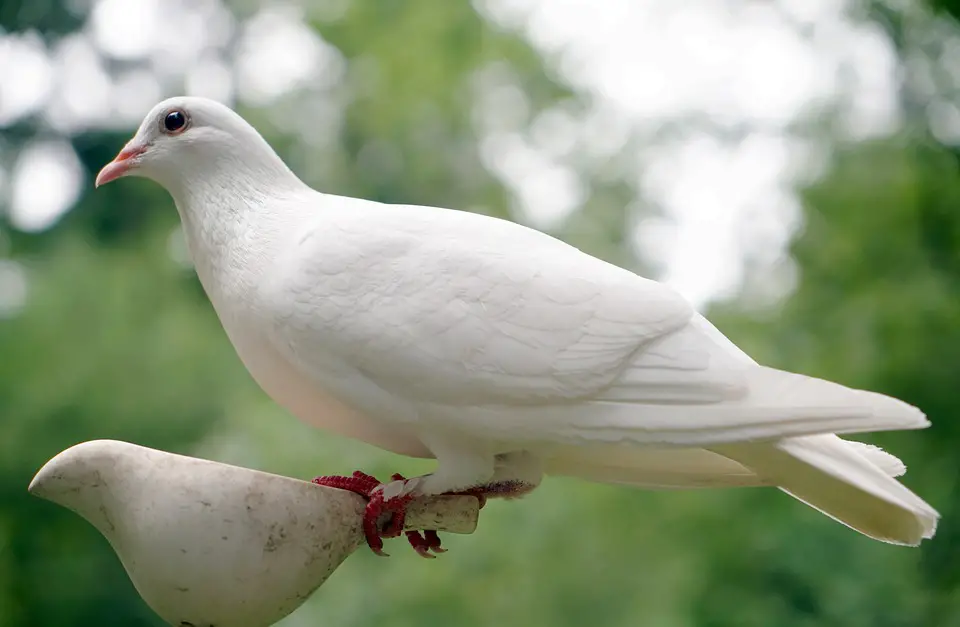
Domesticated, hand-fed doves are charming and gentle birds. They rarely bite, and even those with limited bird experience generally find it easy to bond with them. They love human companionship, but they’re not demanding attention.
They’re ideal for small children, who can easily handle them, and for older children who enjoy the company of a pet bird. A mature dove is a good companion for an older child or anyone who a bird has bitten in the past.
Doves make good pets for people with allergies or asthma. They’re generally healthy birds and don’t require much maintenance, although they need a large cage that allows them to spread their wings and move about. They’re happy to live in cages that are tall enough for them to stand up in and don’t mind being caged for most of the day. Doves are social birds and like to be around other birds. They often form pairs, and the female will defend her mate fiercely. When the male is injured or sick, he will seek comfort from the female.
Cockatoo
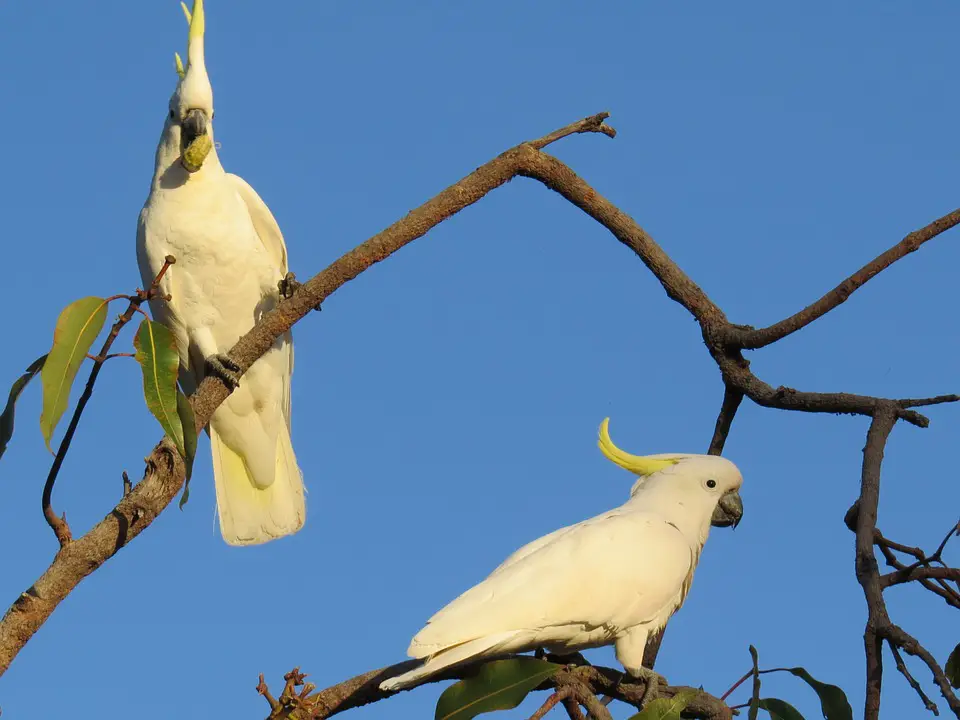
If you prefer a more giant pet bird, cockatoos are a great choice. They are very affectionate and friendly and enjoy being around people. They will bond with you as much as you want to spend time with them, and they prefer to be around you as often as possible.
The cockatoo might feel sad lonely, can become very distressed when it feels neglected, and it might pluck out its feathers or perform other self-destructive behaviors.
Cockatiel
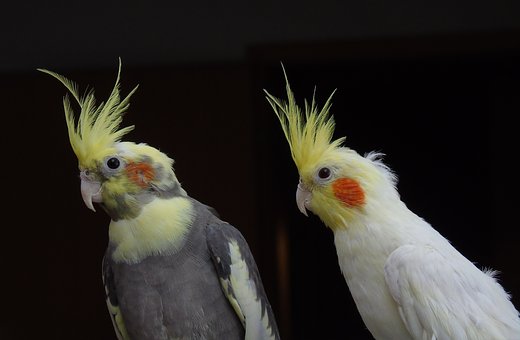
Cockatiels are beautiful and affectionate pet bird that is native to Australia. They have a natural curiosity about the world around them and are an ideal choice for anyone wanting a great pet that’s also very smart. Cockatiels don’t usually learn to talk but sing, whistle, and mimic sounds.
Cockatiels can learn to sit quietly on people’s shoulders, and people often love knowing that the feathers on their heads are so soft. They also enjoy being petted gently.
Cockatiels are one of the most social parrots, and they enjoy chewing wood and playing with moving objects on their toys, like wooden sticks and other toys. Like other parrots, cockatiels are very colorful and enjoy multiple colors of toys. They also enjoy climbing ladders and swinging in a perch. Make sure you purchase toys designed for your bird’s specific needs, like toys made especially for cockatiels.
Lovebirds

These are named ‘lovebirds’ because they are so loving and attentive to their human owner, just as a pair of lovebirds are to each other. These birds don’t need to be kept in pairs, and in fact, owning a single bird can be the best option for people who want to keep their pets happy. Owners of lovebirds will find that this pet is ready to be social and play with other pets when paired with another bird.
The life expectancy is about 15 years, which is not long compared to some other pet species. A lovebird is an excellent pet for those looking to own a unique bird that loves to spend time with them.
Canaries
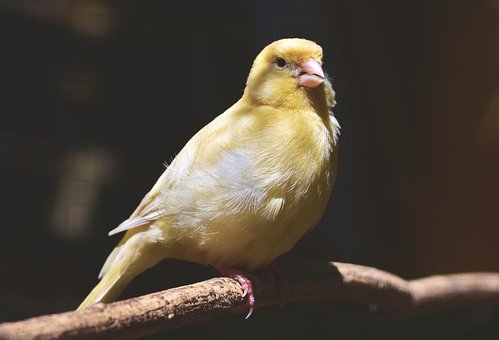
Many people think that canaries are similar to doves, but canaries are shy birds and won’t be comfortable in a small cage. They prefer large cages, much like parrots and cockatoos. You should consider a large flight cage for your new friend if you buy a canary.
The canary has a famous singing voice, and it’s only the male birds who sing. If you’re looking to befriend a musical pet, a male canary might be your best bet, but if you’re looking for a quieter friendship, a female canary will make the perfect pet.
Factors to consider when selecting a pet bird for purchase.
- How much time you are willing to commit to your new companion.
- How big or small a bird are you looking for?
- Determine the behavior and temperament that you can bear.
- Budget and Finances are vital factors to ensure you don’t break the bank and starve the two of you.
- If you don’t like a mess, go for small sizes. Small means less clutter.
- Nutrition and Maintenance. Find out from your breeder how available is your desired pets’ diet.
- If you don’t have much space, again consider the size.
- Go for the quiet type if you don’t like loud screaming birds.
- If you are concerned if your bird will get along with other pets, consult on what bird can share space safely.
- Seek the gentle types if you don’t like aggressive birds.
- If you prefer a talking bird, be ready to engage, and your guests will be fascinated. Remember not to tell them secrets, hahaha.

